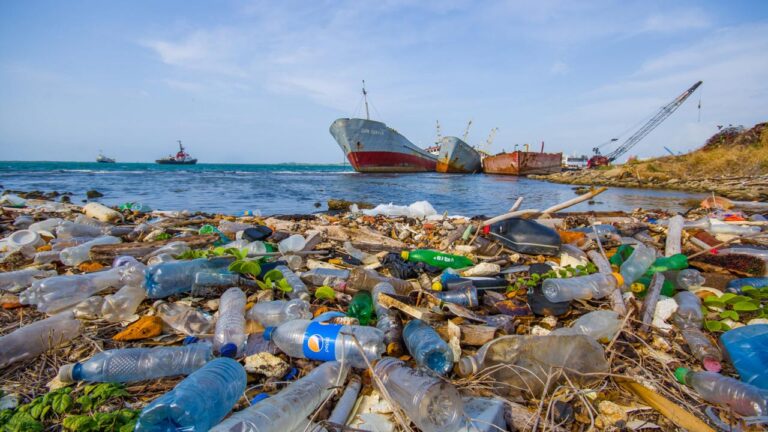Ocean pollution and health implication on the people

By Femi Akinola
Contamination of coastal waters is simply pollution of the marine ecosystem. It has to do with any form of energy in the coastal sub-stances or any form of energy in the coastal environment , which results or is likely t result in adverse effects in the ecosystem due to changes in the physical, chemical and biological characteristics.
There are different kinds of ways which causes marine environment pollution. They are but not limited to oil spills, depletion of oxygen in seawater, littering, international discharge, nonpoint source pollution, ocean mining, etc.
Ocean pollution has many consequences that directly and indirectly affect marine life, as well as humans.
The influx of chemicals, nutrients and plastic materials from industrial, agricultural discharge and people’s discharge of used plastics to coastal ways could promote bio- accumulation of toxins that contaminate aquaculture operations.
Emerging microbial contamination in ocean waters, according to the United Nations in 2019, causes adverse societal impacts as over three (3) billion people worldwide depend on marine and coastal biodiversity for their livelihood.
For example, findings showed that waterborne pathogens and alien species from sewage or ballat water discharge contaminate coastal waters used for recreational or aquaculture activities which could subsequently affect human, animal, and ecosystem health.
Based on my findings on current threats to human health through the marine ecosystem, it was revealed that sinks of human and animal pathogens, disease – causing pathogens in aquaculture and
plastic pollution are regarded as emerging threats to human health and marine ecosystem.
Microbial contaminants in marine environments provides a genetic reservoir of anti-biotic resistant bacteria (ARB) which enables acquisition of antibiotic resistance genes (ARGs), by susceptible bacteria through mobile genetic elements (MGEs).
The presence of heavy metals and biocides in coastal marine waters could select for ARGs through biocide and metal resistance genes (BMRG) that promotes antimicrobial resistance (AMR).
The antimicrobial resistance (AMR), further findings revealed, is a global health challenge that involves bacteria evolving or acquiring resistance mechanisms to evade treatment by antimicrobials, (Larsson and Flach, 2022) narrated.
Another emerging challenge within the coastal and marine landscape which contaminated coastal water is plastic pollution.
Common plastics such as polyethylene (PE), polypropylene (PP) are buoyant and usually undergo photodegradation and leaching in warm, irradiated conditions which enable the growth of bacteria on these surfaces, known as plastic spheres, which could provide dissemination route for opportunistic pathogens.
Why ocean pollution is a problem to humans? Findings showed that ocean pollution is harmful to human health because pollutants in the ocean make their way back to humans.
Hence, small organisms ingest toxins and are eaten by larger predators, many of which are seafood that people eventually consumed.
